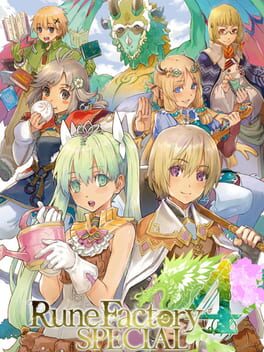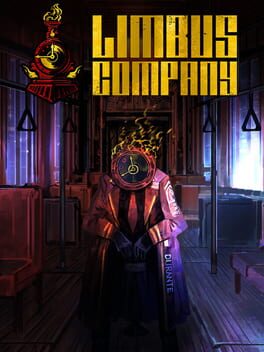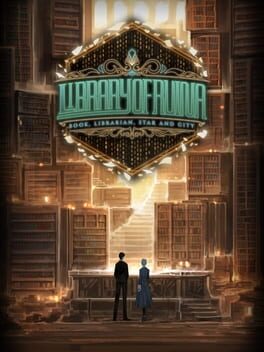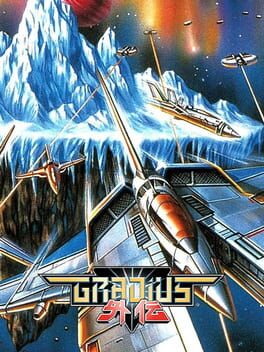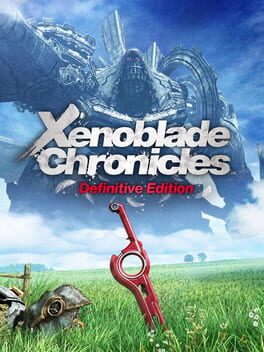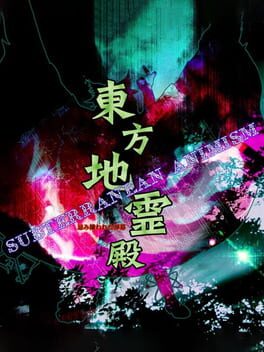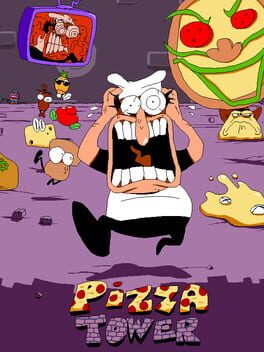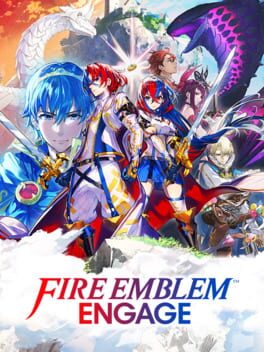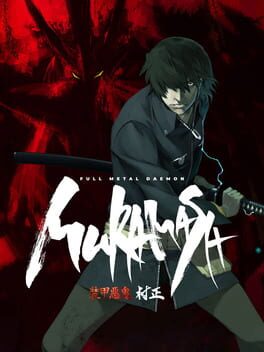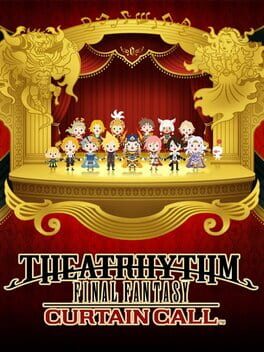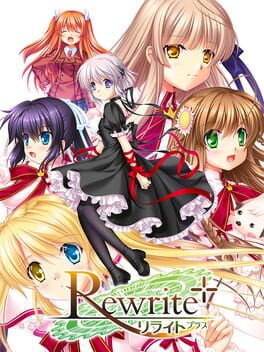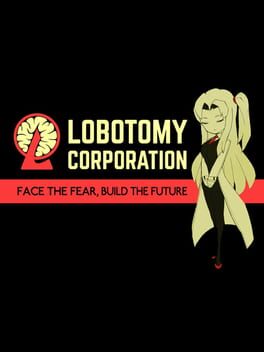100 Reviews liked by Amir
This review contains spoilers
This is one of favorite game of all time and for me, it’s the best farming fighting game out there. I played the 3DS version first and they played Special when it initially released.
I’ve tried a lot of Harvest moon games in the past, but I just felt like they failed to keep my attention for long and I would barely get past spring on year 1.
But in this game, I feel like there are so many things you can do that constantly keep my attention. I have some days where I focus on my farm and talk to the townsfolk. Other days I focus on progressing the story and fight in dungeons. I love switching up the focus, which games like Harvest Moon never let me do.
Farming also just feels much faster paced than you’d expect. Even with most basic water can for example, you can water and walk at the same time, rather than going to each individual plot to water it. Once you start getting your own monsters to work on the farm, you’ll barely have any farm work to do yourself, which I actually like a lot. Farming can also be simple or much more complicated. If you have a magnifying glass in the game, you can lot at the stats of the soil and object that’s planted there. There are lots of stats for the soil, which is something I’ve never seen any other farming game.
You can also craft and cook in this game. There are so many weapons, accessory armor, food, and medicine to craft.
There is even a post game called Sharance maze. I’ve actually never finished it, the levels of the monsters go even higher than the monsters in Arc 3 of the game.
In terms of romance, I always went for the guy characters. When I first played this on 3DS, I chose Vishnal to marry. But in my second full play though on switch, I tried going for Dylas, but they ended up picking Arthur to marry instead. I originally wasn’t a fan of Arthur’s design, but his personality is cute.
The only thing I thought was not that great was the story (this is the spoiler part). I thoughts arcs 1 and 2 were fine. At the end of arc 2, Venti is gone, and it seems like she would be gone for good, right? Wrong. Arc 3 sets out to bring Venti back, even though this feels like it goes against the original intent of the story. I guess they didn’t want to leave things on a sour note, so they gave the game a happy ending.
I do think RF4S looks gross because they used pixel smoothing, which I’m not a fan of. But that’s the only real issue I have with this game. RF4S makes improvements to how the events are activated and add new new content with newly wedded mode.
I love RF4 and RF4S adds more improvements making this the better version.
I’ve tried a lot of Harvest moon games in the past, but I just felt like they failed to keep my attention for long and I would barely get past spring on year 1.
But in this game, I feel like there are so many things you can do that constantly keep my attention. I have some days where I focus on my farm and talk to the townsfolk. Other days I focus on progressing the story and fight in dungeons. I love switching up the focus, which games like Harvest Moon never let me do.
Farming also just feels much faster paced than you’d expect. Even with most basic water can for example, you can water and walk at the same time, rather than going to each individual plot to water it. Once you start getting your own monsters to work on the farm, you’ll barely have any farm work to do yourself, which I actually like a lot. Farming can also be simple or much more complicated. If you have a magnifying glass in the game, you can lot at the stats of the soil and object that’s planted there. There are lots of stats for the soil, which is something I’ve never seen any other farming game.
You can also craft and cook in this game. There are so many weapons, accessory armor, food, and medicine to craft.
There is even a post game called Sharance maze. I’ve actually never finished it, the levels of the monsters go even higher than the monsters in Arc 3 of the game.
In terms of romance, I always went for the guy characters. When I first played this on 3DS, I chose Vishnal to marry. But in my second full play though on switch, I tried going for Dylas, but they ended up picking Arthur to marry instead. I originally wasn’t a fan of Arthur’s design, but his personality is cute.
The only thing I thought was not that great was the story (this is the spoiler part). I thoughts arcs 1 and 2 were fine. At the end of arc 2, Venti is gone, and it seems like she would be gone for good, right? Wrong. Arc 3 sets out to bring Venti back, even though this feels like it goes against the original intent of the story. I guess they didn’t want to leave things on a sour note, so they gave the game a happy ending.
I do think RF4S looks gross because they used pixel smoothing, which I’m not a fan of. But that’s the only real issue I have with this game. RF4S makes improvements to how the events are activated and add new new content with newly wedded mode.
I love RF4 and RF4S adds more improvements making this the better version.
Limbus Company
2023
While the game is nowhere near “completion” at the time I’m writing this, with ~45 hours logged and all of the currently available main story content finished, I feel like I’ve had enough time in the game to justify sharing some sentiments.
It is imperative that I mention how much I despise gachas, battle passes, games with “dailies”, all that stuff; they are systems put in place to prey on as much of your time and money as possible, it’s an irrefutable fact and one that these types of games usually barely even try to disguise. That’s not something I would ever feel comfortable with outright dismissing or excusing in any way, so to make it perfectly clear: I do not agree with any of those decisions, and it’s absolutely a knock against the game. With all of that being said, it’s hugely impressive that my unwavering belief in the absolute artistry Project Moon has proven themselves capable of crafting twice before in Lobotomy Corporation and Library of Ruina supersedes my vehement hatred for the format. I was more than willing to download the game and give it a shot because I need more of the world they’ve so loving and carefully crafted, and I’m really happy with my decision to do so.
To my complete and utter lack of surprise, most of everything that makes these games so phenomenal is still here in full effect. Going from having a small, isolated piece of the world in Lobotomy Corporation with only a vague understanding of outside happenings, to a more concrete understanding of how the world is structured and how society works in Library of Ruina, to being able to actually explore through that world from the perspective of characters who are actually there is really satisfying. It’s such a natural stream of progression but it’s executed brilliantly. I’ve played a lot of games, and there are very few that can come anywhere close to Project Moon’s world-building prowess.
I was initially a bit concerned about leaving the cast we’ve grown comfortable with since Lobotomy Corporation behind in favor of replacing them with an entirely new menagerie of characters, but it turns out those worries were totally unfounded because the Sinners are great. It took me a little while to warm up to the Lob Corp cast, but I’ve loved the Sinners from their introduction and it only got better as the story went along (and will only continue to get better from here, I’m sure). As a Kid Icarus: Uprising and Higurashi super maniac, character chemistry and the enjoyability that ensues from character back and forths is just as important (if not moreso) than how “good” a character is individually. The Sinners all bounce off of each other really well, whether they’re brutally eviscerating/maiming one another or sharing a nice chicken kebab. Lots of room for the characters to grow, too, even though there have already been clear-cut examples of development. The found family vibes are STRONG.
The one area I’m kinda down on the game about is the actual gameplay. To put it bluntly, Limbus Company’s gameplay feels like everything Library of Ruina already did…but worse. There’s not a single thing it does better in my eyes, which is really disappointing considering that Ruina has one of the best gameplay systems I've ever encountered. An ok Ruina is still pretty good though even if things can feel a little too luck dependent for my liking sometimes, especially in the Chapter 3 difficulty spike where a lot of difficult fights are made difficult because you have no control over which enemies you’re attacking. I'd chalk things up to "it's a necessary evil to water things down, it needs to be easily digestible" if not for the fact that a better version of the game's combat system literally already exists within the game itself. The abnormality and boss fights, while still not perfect, are much more enjoyable simply on the merits of giving the player control over what clashes happen, what enemy you're attacking, etc. I think with some slight improvements, they could really be onto something even if I personally doubt it’s going to ever quite reach the highs of Ruina’s snappy, tactical moment to moment gameplay (I would love to be proven wrong though!)
So yeah, really excited to see where things go next with this one. #LimbusSweep and Don Quixote will be the first character in history to have one Limbillion fans.
It is imperative that I mention how much I despise gachas, battle passes, games with “dailies”, all that stuff; they are systems put in place to prey on as much of your time and money as possible, it’s an irrefutable fact and one that these types of games usually barely even try to disguise. That’s not something I would ever feel comfortable with outright dismissing or excusing in any way, so to make it perfectly clear: I do not agree with any of those decisions, and it’s absolutely a knock against the game. With all of that being said, it’s hugely impressive that my unwavering belief in the absolute artistry Project Moon has proven themselves capable of crafting twice before in Lobotomy Corporation and Library of Ruina supersedes my vehement hatred for the format. I was more than willing to download the game and give it a shot because I need more of the world they’ve so loving and carefully crafted, and I’m really happy with my decision to do so.
To my complete and utter lack of surprise, most of everything that makes these games so phenomenal is still here in full effect. Going from having a small, isolated piece of the world in Lobotomy Corporation with only a vague understanding of outside happenings, to a more concrete understanding of how the world is structured and how society works in Library of Ruina, to being able to actually explore through that world from the perspective of characters who are actually there is really satisfying. It’s such a natural stream of progression but it’s executed brilliantly. I’ve played a lot of games, and there are very few that can come anywhere close to Project Moon’s world-building prowess.
I was initially a bit concerned about leaving the cast we’ve grown comfortable with since Lobotomy Corporation behind in favor of replacing them with an entirely new menagerie of characters, but it turns out those worries were totally unfounded because the Sinners are great. It took me a little while to warm up to the Lob Corp cast, but I’ve loved the Sinners from their introduction and it only got better as the story went along (and will only continue to get better from here, I’m sure). As a Kid Icarus: Uprising and Higurashi super maniac, character chemistry and the enjoyability that ensues from character back and forths is just as important (if not moreso) than how “good” a character is individually. The Sinners all bounce off of each other really well, whether they’re brutally eviscerating/maiming one another or sharing a nice chicken kebab. Lots of room for the characters to grow, too, even though there have already been clear-cut examples of development. The found family vibes are STRONG.
The one area I’m kinda down on the game about is the actual gameplay. To put it bluntly, Limbus Company’s gameplay feels like everything Library of Ruina already did…but worse. There’s not a single thing it does better in my eyes, which is really disappointing considering that Ruina has one of the best gameplay systems I've ever encountered. An ok Ruina is still pretty good though even if things can feel a little too luck dependent for my liking sometimes, especially in the Chapter 3 difficulty spike where a lot of difficult fights are made difficult because you have no control over which enemies you’re attacking. I'd chalk things up to "it's a necessary evil to water things down, it needs to be easily digestible" if not for the fact that a better version of the game's combat system literally already exists within the game itself. The abnormality and boss fights, while still not perfect, are much more enjoyable simply on the merits of giving the player control over what clashes happen, what enemy you're attacking, etc. I think with some slight improvements, they could really be onto something even if I personally doubt it’s going to ever quite reach the highs of Ruina’s snappy, tactical moment to moment gameplay (I would love to be proven wrong though!)
So yeah, really excited to see where things go next with this one. #LimbusSweep and Don Quixote will be the first character in history to have one Limbillion fans.
Library of Ruina
2021
This review contains spoilers
Really, I can't think of a bigger argument against the now-ubiquotus early access release model than Library of Ruina. The magnitude of its greatness is so staggering that it is only inhibited from perfection by the extent to which the earliest installments in the update cycle clearly lack the polish and care put into the final ones — methods of presenting the story along with the characters such as pre-battle dialogues on the battlefield as well as dynamic cutscenes featuring the sprites duking it out in the background are all saved near-exclusively for the final set of fights, excluded from even the most emotionally gratifying and narratively significant story beads from earlier in the game. Conventional logic dictates that a more contained development cycle might have provided the chance to go back and freshen up the comparatively plain segments developed earlier in the game's life cycle, but alas I doubt Project Moon saw much point in doing so when most of its at-the-time fanbase had played update-to-update and were long past the point of desiring a do-over on content they'd already mastered, instead fiending for the final Receptions and the resulting conclusion to the tale of the Library.
Perhaps I'd feel differently if I were there before the game's full release, instead being impressed by the fact that Project Moon chose to go all-out for the game's final stretch. Alas I did not, and instead I'm left feeling deeply perturbed by the fact that the game is so backloaded in terms of attention to detail and the crafting of the means by which the story is conveyed - even the "small stories" between the Librarians only begin to crop up towards the end, and the little looks into the everyday goings-on within the Library are welcomed just as quickly as they eventually end which is surely another product of an idea added later in development that wasn't retroactively implemented to the earlier parts of the game.
Speaking of the story I wish I could suggest that my qualms with it exclusively reflected Project Moon's ability to put their plot on display, but unfortunately not even the writing - for all its depth, richness and substance of which you rarely see in video games - is wholly unaffected by the piecemeal means in which it was made available to the audience.
There are aspects I have issues with on the whole (namely that many major characters hardly get exposition or a chance to find their place in the story before they're thrust into the spotlight for major conflict or treated with extreme thematic importance, such as Greta who we literally never even hear mentioned prior to her introduction as a member of the Ensemble), but a couple of major examples stand out to me: Hokma is perhaps the only non-Keter librarian who has an actual character arc as opposed to mostly using their own growth from the previous game as a conduit and catalyst by which Angela and Roland can grow, but since he's the last Librarian to make his entrance into the story and only does so in the penultimate chapter of the game he has a lot of growth to do in very little time (even less time than most of the other Librarians, as Binah and Hokma only have three Abnormality battles before their Realizations as opposed to the four of the other Floors). It ends up feeling rushed, as Hokma's one-time identity of Benjamin is killed off so that he may be reborn as his own individual for the first time within the span of two cutscenes. I don't mean to insinuate that Hokma's character is any weaker for this (quite the opposite, as his Realization got the biggest emotional reaction of all the Realizations out of me), but I believe presentation to be every bit as important as what's penned to paper - and in a game that prides itself on style and was developed with the utmost attention and care put into the way the plot itself was conveyed, it sticks out like a sore thumb.
The other one I've saved for last due to the extent to which it left a bad taste in my mouth, and especially due to the fact that it's emblematic of the very same problems with the world and the systems we exist within that Library of Ruina exists to stand up and out against: when I beat Library of Ruina for the first time I was troubled and a little let down by the fact that every single Librarian effectively ceases to be relevant the instant the final reception is over with, which is troubling considering that they've all grown into individuals who wish to live of their own volition as opposed to the servile robots they existed as in Lobotomy Corporation - so many of them have arcs in Library of Ruina espousing their belief in man's ability to prosper in spite of the world it's found itself existent within, so why are their desires to live and their hopes for their futures not given the same weight and importance as Roland's and Angela's? It's natural that Roland, as the protagonist and the character that most embodies what Library of Ruina hopes to convey, would be the focal point of the finale, but it did bother me that since his own arc as well as Angela's are both about no longer centering themselves at others' expense they do in fact shut out all others in the end without so much as a word of what they hope to get up to now that the Library lies dormant and they're freed of their duty...
And then I learned that in the original release of the final update the other Librarians did make an appearance, as the credits showed a montage of what the Librarians' lives were like as they continued to coexist together in the Outskirts. This was removed later by the developers, leaving the ending sudden and incomplete in its current state! I was puzzled and baffled by this decision and looked into why it was changed - only to find that a large quotient of Library of Ruina's consumer base apparently disliked the ending and review bombed the game, threatening its profitability now that it was out of Early Access and marked with mostly negative reviews on the only marketplace it was available (with plenty being able to be said here about Steam's pseudomonopoly over game storefronts in relevance to the game's themes). So naturally Project Moon neutered their own product to appeal to its customers, ensuring it could satisfy them rather than satisfy the vision that was originally intended. I can't say I don't understand, as doing what you have to do to survive under capitalism is a major idea that Library of Ruina hammers in and ultimately does not judge anybody for - but Library of Ruina is also one of the only truly great anticapitalist narratives in video games, and probably the only one that serves as genuine praxis without just repeating theory over and over again. The game ends on a note that stresses the importance of removing one's self from those systems and choosing to care about one's self without regard for the oppressive social norms that force one to place themselves underfoot of those who would love nothing more to walk all over them - which the developers did not do, and eventually caved in to the pressure.
Not only is it unsatisfying and leaves the ending feeling incomplete, it's also a bit toothless and dampens those ideas a bit to me in the end. VA-11 Hall-A is a cyberpunk game much like Library of Ruina is that I've called perfect due to how corporate meddling inadvertently reinforced the ideas the game touches on - but those little thorns and weird bits didn't stab far enough into VA-11 Hall-A to drain any life and livelihood from the story it aimed to tell at the very end. Library of Ruina, on the other hand, has its wings clipped right as it reaches its most soaring of heights.
Okay, now I'm done talking about all the stuff I don't like and don't have to worry about bringing it up anymore. Are you ready? Because holy shit, even with all the frustrating things I just wrote a thesis on just now, Library of Ruina is one hell of a game in basically every respect. Like, even when you consider all the stuff I just spent a billion words bitching about Library of Ruina is never ever less than good at the absolute worst, and it's more consistently great, and absolutely incredible with a regularity most games can only dream of keeping up with. It knows exactly what it wants to say and pretty much says it as loudly and proudly as it possibly can, ideas so strong and so firmly spoken that they manage to resonate perfectly even when Project Moon was forced to gnaw its own leg off to fend off the review bombs.
Once again, this is one of the only actually good critiques of capitalism in games - Disco Elysium often comes to mind when one thinks of Good Leftist Game Narratives™️ but what makes Library of Ruina all the more impressive is that actual economic/political ideology is used exactly once near the very end when a character mentions that the slums of the City are being gentrified, using that exact word. Instead, Library of Ruina chooses to voice its disdain for capitalism by showing an unapologetic, unadulterated and unfiltered look into the world that blooms from the seeds of discontent sown by a world that forces individuals against one another and crushes them between the cogs of the great machine. Some might classify the oppressively grim nature of the City as an exaggeration that borders on comical, but it feels appropriate: the Head as an all-knowing entity that perpetuates insane cycles of violence and despair for no other reason than that it amuses them might seem unrealistic, but what other justification can there be for capitalism other than a beast that consumes all it touches wholesale simply to keep itself afloat? Project Moon is a Korean studio, but the constant violence and murder practiced between the City's denizens brings to mind the very real realities of the United States in this day and age: inner-city youths slaughtering one another en masse as a result of the conflicts they introduce themselves into in hopes that they might find security and a means to provide for themselves and their loved ones, innocent being killed in mass shootings with such regularity that most people don't even know when our last shooting was, minorities being gunned down by the police simply for existing, large-scale wars breaking out out of a desire for power or resources by the aggressors... the City appears cartoonish only because we view its violence in a context dissimilar to our own, rendered alien only because it is just distinct enough to not act as a reflection of what most individuals are too desensitized by to truly question.
The Index and the Will of the City that they serve embody a theory with much greater and wider boundaries, which in my opinion strikes more deeply at the heart of what Ruina believes in and what Project Moon has always been about: that capitalism itself, while it exists to perpetuate the suffering and rancor that birthed it, is not necessarily the root of all suffering in the world. The cruelty, violence and widespread agony that has always plagued mankind did so before the advent of capitalism as we know it today. Most of modern history can be documented and measured by wars and conflicts, and the civilizations that paved the path we now walk shone brightly and were promptly burned to the ground by the discord sown within their very cores.
As unfortunate as it may be - and seemingly simple, considering the complexity of the means by which Library of Ruina gets this point across - the root of the issue is simply that people do not care about one another, certainly not enough to be kind to and look out for their fellow man.
Chrono Cross is my favorite game of all time in large part due to its studies on the inevitability of conflict, and the stress it places on the importance of breaking cycles of violence and instead choosing to create circumstances and environments among your peers where conflicts may never have to escalate into bloodshed and can instead be solved peacefully, motivated by a desire to see things through for everybody rather than a desire to see your enemies fall. In a few different ways I believe that Library of Ruina shows what that future being built may look like: of understanding that in times of strife and pathos one's love for their closest ones takes precedence over the pain imbued by the harm done, and choosing to nurture that love and let it bloom rather than nipping it in the bud. Compassion is infinite, whereas hatred can only get someone so far - and while scorn can harm you if you drink too deeply of it, there's no such thing as an abundance of love or being too kind to somebody you treasure.
Of course, it isn't that simple - it never is, and can only be exacerbated by the means by which you've been molded by your past, and the way that past may still cling to you to this very day. To be seen for all your flaws and hangups is terrifying, and when one is more defined by their own pain and scars than they are by the love that exists inside them that fear becomes the norm and the standards by which every interaction and every relationship is scrutinized. It's difficult enough just to exist when burdened by all of that pain, so how can you be expected to show it proudly and trust other people to touch it gently and with understanding, sympathy and acceptance? When you are at your worst - or when your worst has simply become your normal - what guarantee is there that the other party won't simply throw their hands up, give up on you, and intensify the pain that you live with?
Well, there is none. Showing kindness is a deliberate action, not one in the nature of humans as a whole - and it's far too easy to simply give up on it and let that intuition win, to be every bit as afraid of showing off your pain as the other person is. At the end of the day, it's up to you to take that first step and to expose yourself to the risk of anguish, to cling onto the hope that your trust won't be broken.
To embrace the past and break the cycle. To face the fear and build the future.
As previously stressed, conflict is inevitable, especially when each and every living being is carrying their own pain that molds their desires, actions and shapes the person they become. You can't force the world to change overnight, and only one person can only do so much to press back against the cycles the world traps itself in. The only real way to face this inevitability is to be the one to quell it as it rises up, to make the conscious choice to fight the impulses you've been taught to survive and to care about the people around you every bit as much as you care about yourself, and to reject the standards this world forces on you when you look at the person who opposes you.
The world and its people are unkind - but you don't have to be. It's important not to feign ignorance to the nature of the cycles, but it's also important to know when to embrace it and when to embrace the pockets of good and of hope that you can find. Sure, there's no guarantee you won't get hurt again, but there's no guarantee that you will be either. Inevitably, that pain and that rancor will quell up once again...
...but that is that. This - this hope, this joy, this willingness to embrace the good in yourself and in your loved ones, this promise that this world is worth living in and worth fighting for, this resolution that you'll find your place within it as long as you keep your heart open to the love it'll bring you - is this.
Perhaps I'd feel differently if I were there before the game's full release, instead being impressed by the fact that Project Moon chose to go all-out for the game's final stretch. Alas I did not, and instead I'm left feeling deeply perturbed by the fact that the game is so backloaded in terms of attention to detail and the crafting of the means by which the story is conveyed - even the "small stories" between the Librarians only begin to crop up towards the end, and the little looks into the everyday goings-on within the Library are welcomed just as quickly as they eventually end which is surely another product of an idea added later in development that wasn't retroactively implemented to the earlier parts of the game.
Speaking of the story I wish I could suggest that my qualms with it exclusively reflected Project Moon's ability to put their plot on display, but unfortunately not even the writing - for all its depth, richness and substance of which you rarely see in video games - is wholly unaffected by the piecemeal means in which it was made available to the audience.
There are aspects I have issues with on the whole (namely that many major characters hardly get exposition or a chance to find their place in the story before they're thrust into the spotlight for major conflict or treated with extreme thematic importance, such as Greta who we literally never even hear mentioned prior to her introduction as a member of the Ensemble), but a couple of major examples stand out to me: Hokma is perhaps the only non-Keter librarian who has an actual character arc as opposed to mostly using their own growth from the previous game as a conduit and catalyst by which Angela and Roland can grow, but since he's the last Librarian to make his entrance into the story and only does so in the penultimate chapter of the game he has a lot of growth to do in very little time (even less time than most of the other Librarians, as Binah and Hokma only have three Abnormality battles before their Realizations as opposed to the four of the other Floors). It ends up feeling rushed, as Hokma's one-time identity of Benjamin is killed off so that he may be reborn as his own individual for the first time within the span of two cutscenes. I don't mean to insinuate that Hokma's character is any weaker for this (quite the opposite, as his Realization got the biggest emotional reaction of all the Realizations out of me), but I believe presentation to be every bit as important as what's penned to paper - and in a game that prides itself on style and was developed with the utmost attention and care put into the way the plot itself was conveyed, it sticks out like a sore thumb.
The other one I've saved for last due to the extent to which it left a bad taste in my mouth, and especially due to the fact that it's emblematic of the very same problems with the world and the systems we exist within that Library of Ruina exists to stand up and out against: when I beat Library of Ruina for the first time I was troubled and a little let down by the fact that every single Librarian effectively ceases to be relevant the instant the final reception is over with, which is troubling considering that they've all grown into individuals who wish to live of their own volition as opposed to the servile robots they existed as in Lobotomy Corporation - so many of them have arcs in Library of Ruina espousing their belief in man's ability to prosper in spite of the world it's found itself existent within, so why are their desires to live and their hopes for their futures not given the same weight and importance as Roland's and Angela's? It's natural that Roland, as the protagonist and the character that most embodies what Library of Ruina hopes to convey, would be the focal point of the finale, but it did bother me that since his own arc as well as Angela's are both about no longer centering themselves at others' expense they do in fact shut out all others in the end without so much as a word of what they hope to get up to now that the Library lies dormant and they're freed of their duty...
And then I learned that in the original release of the final update the other Librarians did make an appearance, as the credits showed a montage of what the Librarians' lives were like as they continued to coexist together in the Outskirts. This was removed later by the developers, leaving the ending sudden and incomplete in its current state! I was puzzled and baffled by this decision and looked into why it was changed - only to find that a large quotient of Library of Ruina's consumer base apparently disliked the ending and review bombed the game, threatening its profitability now that it was out of Early Access and marked with mostly negative reviews on the only marketplace it was available (with plenty being able to be said here about Steam's pseudomonopoly over game storefronts in relevance to the game's themes). So naturally Project Moon neutered their own product to appeal to its customers, ensuring it could satisfy them rather than satisfy the vision that was originally intended. I can't say I don't understand, as doing what you have to do to survive under capitalism is a major idea that Library of Ruina hammers in and ultimately does not judge anybody for - but Library of Ruina is also one of the only truly great anticapitalist narratives in video games, and probably the only one that serves as genuine praxis without just repeating theory over and over again. The game ends on a note that stresses the importance of removing one's self from those systems and choosing to care about one's self without regard for the oppressive social norms that force one to place themselves underfoot of those who would love nothing more to walk all over them - which the developers did not do, and eventually caved in to the pressure.
Not only is it unsatisfying and leaves the ending feeling incomplete, it's also a bit toothless and dampens those ideas a bit to me in the end. VA-11 Hall-A is a cyberpunk game much like Library of Ruina is that I've called perfect due to how corporate meddling inadvertently reinforced the ideas the game touches on - but those little thorns and weird bits didn't stab far enough into VA-11 Hall-A to drain any life and livelihood from the story it aimed to tell at the very end. Library of Ruina, on the other hand, has its wings clipped right as it reaches its most soaring of heights.
Okay, now I'm done talking about all the stuff I don't like and don't have to worry about bringing it up anymore. Are you ready? Because holy shit, even with all the frustrating things I just wrote a thesis on just now, Library of Ruina is one hell of a game in basically every respect. Like, even when you consider all the stuff I just spent a billion words bitching about Library of Ruina is never ever less than good at the absolute worst, and it's more consistently great, and absolutely incredible with a regularity most games can only dream of keeping up with. It knows exactly what it wants to say and pretty much says it as loudly and proudly as it possibly can, ideas so strong and so firmly spoken that they manage to resonate perfectly even when Project Moon was forced to gnaw its own leg off to fend off the review bombs.
Once again, this is one of the only actually good critiques of capitalism in games - Disco Elysium often comes to mind when one thinks of Good Leftist Game Narratives™️ but what makes Library of Ruina all the more impressive is that actual economic/political ideology is used exactly once near the very end when a character mentions that the slums of the City are being gentrified, using that exact word. Instead, Library of Ruina chooses to voice its disdain for capitalism by showing an unapologetic, unadulterated and unfiltered look into the world that blooms from the seeds of discontent sown by a world that forces individuals against one another and crushes them between the cogs of the great machine. Some might classify the oppressively grim nature of the City as an exaggeration that borders on comical, but it feels appropriate: the Head as an all-knowing entity that perpetuates insane cycles of violence and despair for no other reason than that it amuses them might seem unrealistic, but what other justification can there be for capitalism other than a beast that consumes all it touches wholesale simply to keep itself afloat? Project Moon is a Korean studio, but the constant violence and murder practiced between the City's denizens brings to mind the very real realities of the United States in this day and age: inner-city youths slaughtering one another en masse as a result of the conflicts they introduce themselves into in hopes that they might find security and a means to provide for themselves and their loved ones, innocent being killed in mass shootings with such regularity that most people don't even know when our last shooting was, minorities being gunned down by the police simply for existing, large-scale wars breaking out out of a desire for power or resources by the aggressors... the City appears cartoonish only because we view its violence in a context dissimilar to our own, rendered alien only because it is just distinct enough to not act as a reflection of what most individuals are too desensitized by to truly question.
The Index and the Will of the City that they serve embody a theory with much greater and wider boundaries, which in my opinion strikes more deeply at the heart of what Ruina believes in and what Project Moon has always been about: that capitalism itself, while it exists to perpetuate the suffering and rancor that birthed it, is not necessarily the root of all suffering in the world. The cruelty, violence and widespread agony that has always plagued mankind did so before the advent of capitalism as we know it today. Most of modern history can be documented and measured by wars and conflicts, and the civilizations that paved the path we now walk shone brightly and were promptly burned to the ground by the discord sown within their very cores.
As unfortunate as it may be - and seemingly simple, considering the complexity of the means by which Library of Ruina gets this point across - the root of the issue is simply that people do not care about one another, certainly not enough to be kind to and look out for their fellow man.
Chrono Cross is my favorite game of all time in large part due to its studies on the inevitability of conflict, and the stress it places on the importance of breaking cycles of violence and instead choosing to create circumstances and environments among your peers where conflicts may never have to escalate into bloodshed and can instead be solved peacefully, motivated by a desire to see things through for everybody rather than a desire to see your enemies fall. In a few different ways I believe that Library of Ruina shows what that future being built may look like: of understanding that in times of strife and pathos one's love for their closest ones takes precedence over the pain imbued by the harm done, and choosing to nurture that love and let it bloom rather than nipping it in the bud. Compassion is infinite, whereas hatred can only get someone so far - and while scorn can harm you if you drink too deeply of it, there's no such thing as an abundance of love or being too kind to somebody you treasure.
Of course, it isn't that simple - it never is, and can only be exacerbated by the means by which you've been molded by your past, and the way that past may still cling to you to this very day. To be seen for all your flaws and hangups is terrifying, and when one is more defined by their own pain and scars than they are by the love that exists inside them that fear becomes the norm and the standards by which every interaction and every relationship is scrutinized. It's difficult enough just to exist when burdened by all of that pain, so how can you be expected to show it proudly and trust other people to touch it gently and with understanding, sympathy and acceptance? When you are at your worst - or when your worst has simply become your normal - what guarantee is there that the other party won't simply throw their hands up, give up on you, and intensify the pain that you live with?
Well, there is none. Showing kindness is a deliberate action, not one in the nature of humans as a whole - and it's far too easy to simply give up on it and let that intuition win, to be every bit as afraid of showing off your pain as the other person is. At the end of the day, it's up to you to take that first step and to expose yourself to the risk of anguish, to cling onto the hope that your trust won't be broken.
To embrace the past and break the cycle. To face the fear and build the future.
As previously stressed, conflict is inevitable, especially when each and every living being is carrying their own pain that molds their desires, actions and shapes the person they become. You can't force the world to change overnight, and only one person can only do so much to press back against the cycles the world traps itself in. The only real way to face this inevitability is to be the one to quell it as it rises up, to make the conscious choice to fight the impulses you've been taught to survive and to care about the people around you every bit as much as you care about yourself, and to reject the standards this world forces on you when you look at the person who opposes you.
The world and its people are unkind - but you don't have to be. It's important not to feign ignorance to the nature of the cycles, but it's also important to know when to embrace it and when to embrace the pockets of good and of hope that you can find. Sure, there's no guarantee you won't get hurt again, but there's no guarantee that you will be either. Inevitably, that pain and that rancor will quell up once again...
...but that is that. This - this hope, this joy, this willingness to embrace the good in yourself and in your loved ones, this promise that this world is worth living in and worth fighting for, this resolution that you'll find your place within it as long as you keep your heart open to the love it'll bring you - is this.
Gradius Gaiden
1997
Pizza Tower
2023
Limbus Company
2023
Fire Emblem Engage
2023
Persona 5 Royal
2019
Boy, do I love listening to the same three terrible soundtracks for hundreds of hours.
Do you enjoy aimless stories?
Do you enjoy pointless and over-the-top rape scenes in every second chapter?
Do you enjoy characters changing their mind after listening to redditor villains?
Do you enjoy endless exposition about irrelevant shit?
Do you enjoy your cast being full of flat characters?
Do you enjoy neverending lectures regarding swordsmanship in the middle of a fight?
Do you enjoy said fights being decided by random asspulls?
Do you enjoy every single chapter ending in the same identical manner?
Do you enjoy small screen resolution?
Do you enjoy reading from even smaller text box?
Do you enjoy your main characters falling in love with little girls at first sight?
Do you enjoy little schoogirls beating elite soldiers to death with bare hands?
Do you enjoy edgelords perpetually wallowing in self-hatred?
Do you enjoy forcefully thrown flashbacks that add virtually nothing?
Do you enjoy hyper generic and tone deaf vocal tracks?
Do you enjoy dilemma being resolved with cop-outs?
Do you enjoy random CGs and backgrounds that tell you nothing aside from people having figures?
Do you enjoy 'caricature villain of the chapter' plot structure?
Do you enjoy every single sorry excuse of an antagonist dying immediately after they do something minor?
Do you enjoy stories about heroism where there is not a single character representing the population?
Do you enjoy adult trying to act like an animal by writing a poem while fucking a schoolgirl?
Do you enjoy juxtaposition being presented as some deep argument?
Do you enjoy themes set-up in initial chapters never being brought up ever again?
Do you enjoy non-main characters looking and being bland?
Do you enjoy 'I am not like other girls' route system?
Do you enjoy choice system that does opposite of what is generally done and considers itself as subversion?
Do you enjoy said 'subversion' (of harem tropes, allegedly by some readers) having literally zero cohesion and correlation to this story's narrative?
Do you enjoy climax of your choices being off-screened and bearing zero consequences?
Do you enjoy a curse that kills closed ones attached to a person who does not know a single person and has no attachments whatsoever?
Do you enjoy plot randomly making up jobbers just for MC to bypass the curse?
Do you enjoy plot for some reason demanding from the cursed to kill people he just met instead of you know, people he has been chilling with at government?
Do you enjoy relatively grounded and self-serious stories snowballing into Dragon Ball?
Do you enjoy routes being heroine centric and abandoning literally everyone else?
Do you enjoy sprites that do not ever move?
Do you enjoy lack of dynamics and dialogue not having a semblance of interesting or/and likable conversations and banter?
Do you enjoy 3D toy transformations?
Do you enjoy repetitive and flashy closed-up special effects?
Then this product is for YOU!
(Special cheers to people who enjoy it for being funny rather than considering it as something 2deep4u and well-written, though)
Do you enjoy aimless stories?
Do you enjoy pointless and over-the-top rape scenes in every second chapter?
Do you enjoy characters changing their mind after listening to redditor villains?
Do you enjoy endless exposition about irrelevant shit?
Do you enjoy your cast being full of flat characters?
Do you enjoy neverending lectures regarding swordsmanship in the middle of a fight?
Do you enjoy said fights being decided by random asspulls?
Do you enjoy every single chapter ending in the same identical manner?
Do you enjoy small screen resolution?
Do you enjoy reading from even smaller text box?
Do you enjoy your main characters falling in love with little girls at first sight?
Do you enjoy little schoogirls beating elite soldiers to death with bare hands?
Do you enjoy edgelords perpetually wallowing in self-hatred?
Do you enjoy forcefully thrown flashbacks that add virtually nothing?
Do you enjoy hyper generic and tone deaf vocal tracks?
Do you enjoy dilemma being resolved with cop-outs?
Do you enjoy random CGs and backgrounds that tell you nothing aside from people having figures?
Do you enjoy 'caricature villain of the chapter' plot structure?
Do you enjoy every single sorry excuse of an antagonist dying immediately after they do something minor?
Do you enjoy stories about heroism where there is not a single character representing the population?
Do you enjoy adult trying to act like an animal by writing a poem while fucking a schoolgirl?
Do you enjoy juxtaposition being presented as some deep argument?
Do you enjoy themes set-up in initial chapters never being brought up ever again?
Do you enjoy non-main characters looking and being bland?
Do you enjoy 'I am not like other girls' route system?
Do you enjoy choice system that does opposite of what is generally done and considers itself as subversion?
Do you enjoy said 'subversion' (of harem tropes, allegedly by some readers) having literally zero cohesion and correlation to this story's narrative?
Do you enjoy climax of your choices being off-screened and bearing zero consequences?
Do you enjoy a curse that kills closed ones attached to a person who does not know a single person and has no attachments whatsoever?
Do you enjoy plot randomly making up jobbers just for MC to bypass the curse?
Do you enjoy plot for some reason demanding from the cursed to kill people he just met instead of you know, people he has been chilling with at government?
Do you enjoy relatively grounded and self-serious stories snowballing into Dragon Ball?
Do you enjoy routes being heroine centric and abandoning literally everyone else?
Do you enjoy sprites that do not ever move?
Do you enjoy lack of dynamics and dialogue not having a semblance of interesting or/and likable conversations and banter?
Do you enjoy 3D toy transformations?
Do you enjoy repetitive and flashy closed-up special effects?
Then this product is for YOU!
(Special cheers to people who enjoy it for being funny rather than considering it as something 2deep4u and well-written, though)
I truly say this is one of my favorite rhythm games of all time just because the music is already amazing coming from final fantasy. the gameplay truly is simple yet challenging in all the right ways. The dlc adds a lot more great content to it as well giving it a lot of reasons to replay the stages. I constantly find myself coming back to this one.
Rewrite+
2016
Lobotomy Corporation
2018
broke a half star from 5 star rating because gameplay being not enjoyable and tedious. its not for everyone, myself included, but its story and worldbuilding is pretty good so still deserves a 4.5 and average ratings it gets. also its the root and backbone of the masterpiece called library of ruina.

